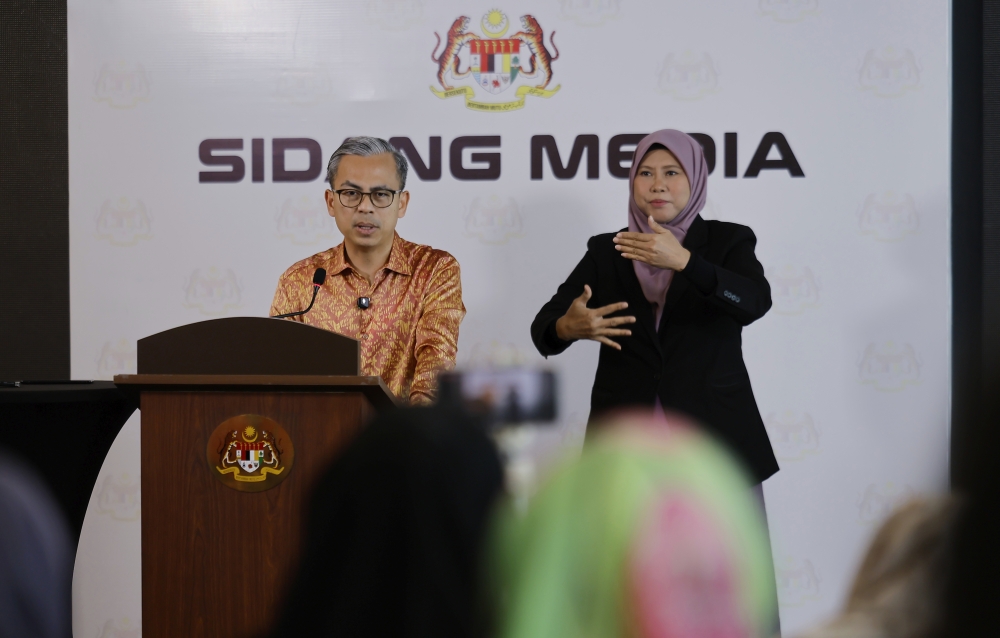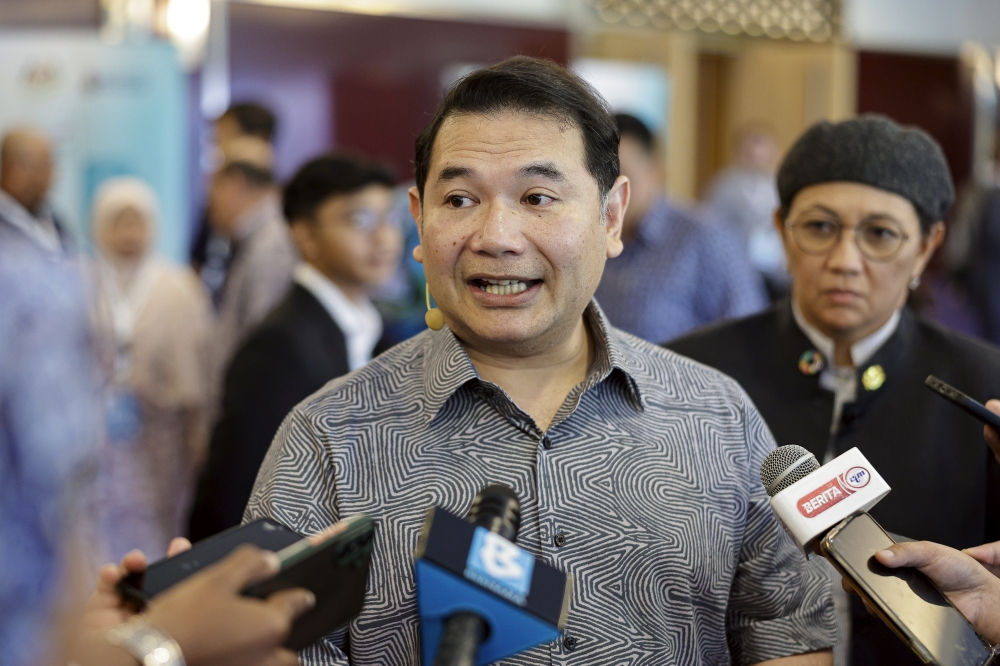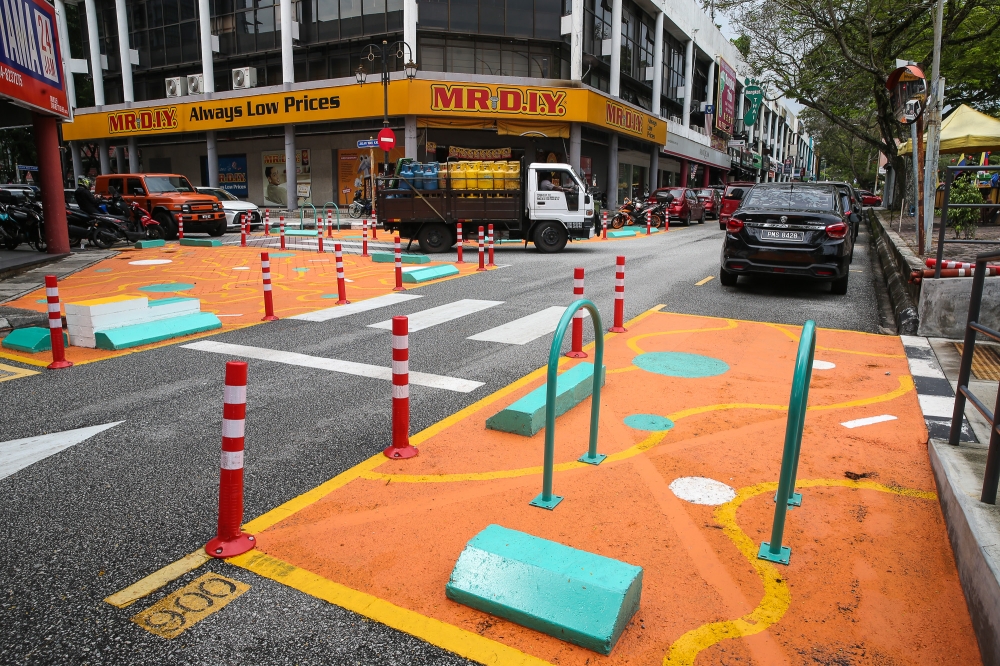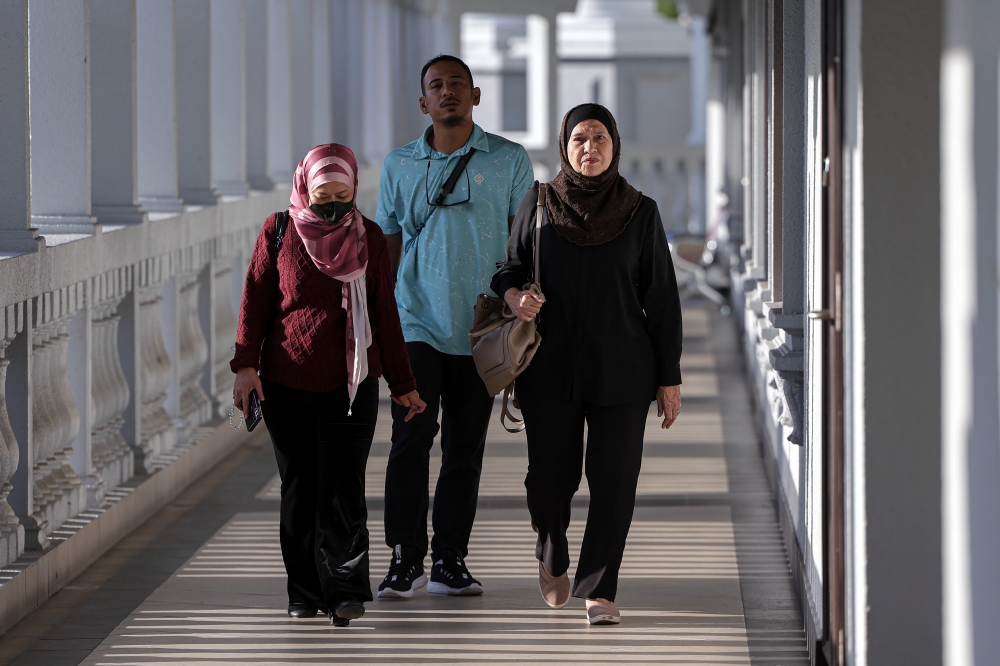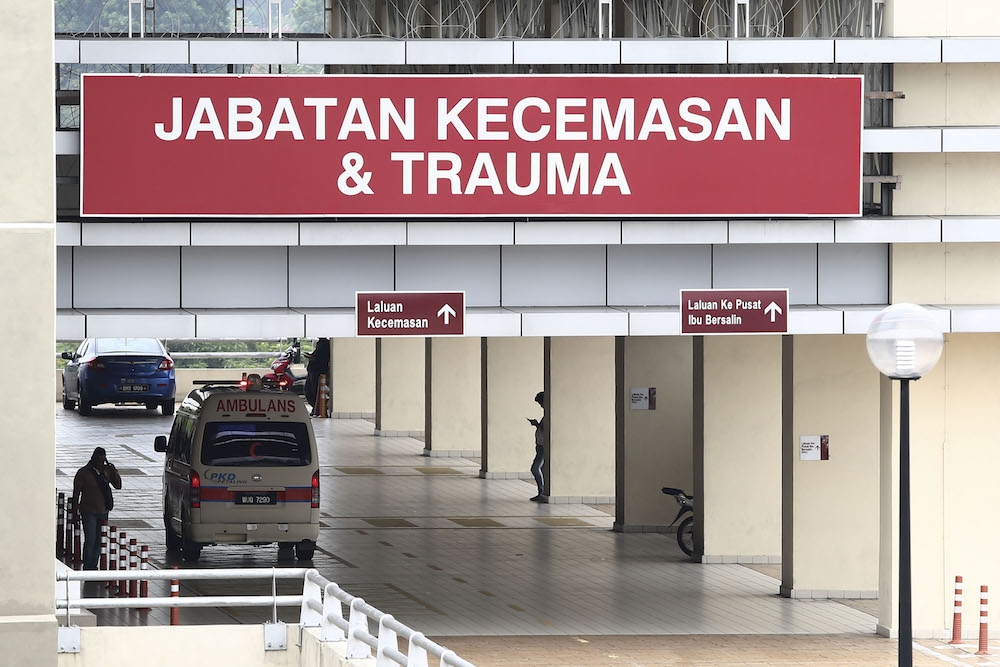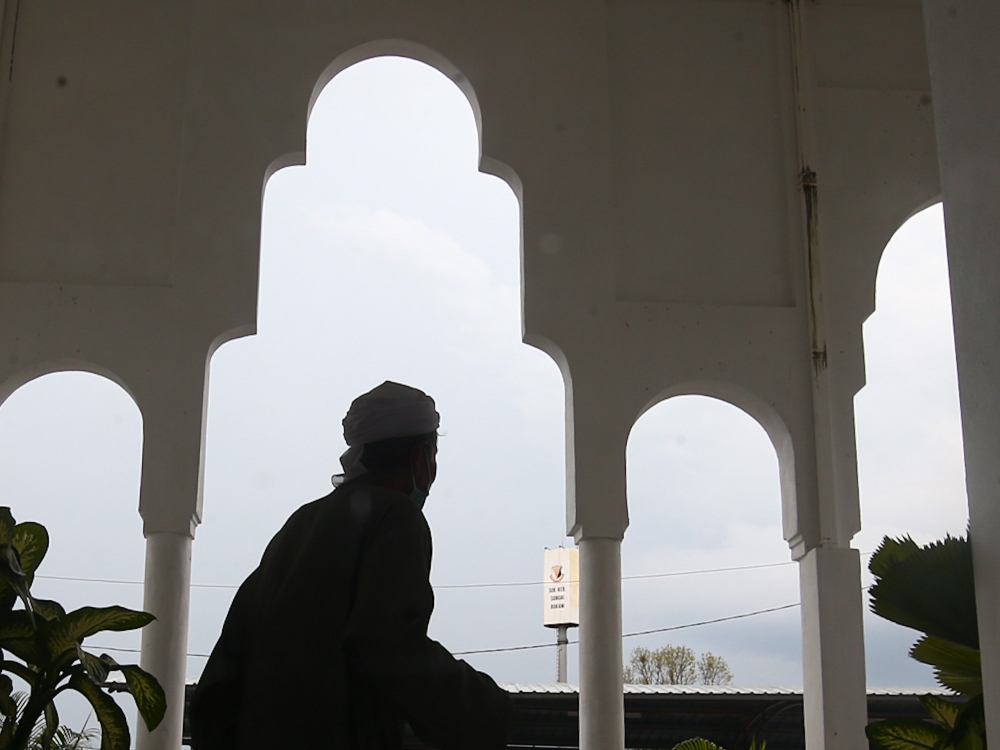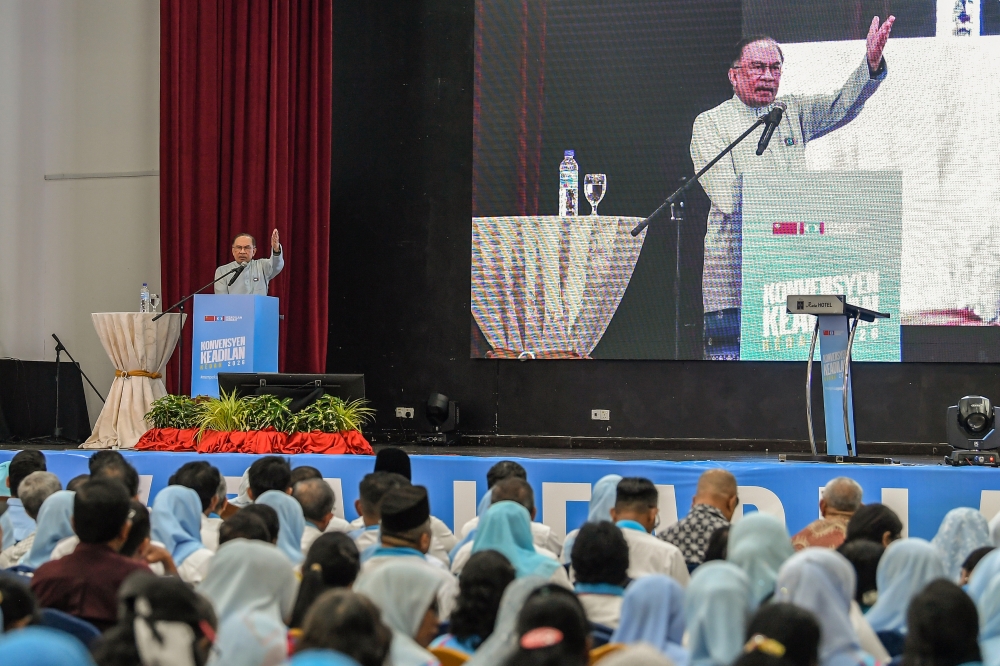KUCHING, Dec 15 — Magasi Valathymanikam and his family of six lived without electricity for more than 30 years in an impoverished Dayak settlement in Kampung Kudei, Satok, on the outskirts of Kuching — until very recently, that is.
When Malay Mail arrived at the muddy settlement on a rainswept afternoon, a figure, with a large gold chain around his neck, materialised out of the blue and greeted us with a wide grin.
All too aware that his presence was a little unexpected, as we had been told the settlement’s residents were all from the Dayak community, he brandished his MyKad to prove that he was indeed a Malaysian.
The 60-year-old civil servant with South Kuching City Council (MBKS) then proceeded to show us his most recent big purchase.
“Actually, it has been less than a month since I bought the generator and I am the only person who has one around here.
“But I still cannot use my refrigerator because it broke down a few days ago,” Magasi told Malay Mail with a chuckle.
His jovial demeanour never wavered throughout the entire interview, even when he recalled how hard it was to get by without electricity at home in the past.
He said that before this, he could not afford to buy a generator due to his low monthly wage.
“I earned RM11 a month way back when. But over the years, my income has increased to more than RM2,000,” he said in an accent that belied his Sarawakian roots.
Magasi said that his mother stays with him, before pointing towards the kitchen where his sister, who had just got back from her part-time job as a domestic helper, was preparing lunch for the whole family.
“I have a son who works in the city, and sometimes, my sister finds work as a helper in Chinese housing areas where she washes clothes and dishes to support the family,” he said.

He then mentioned that the annual year-end torrential rains were worrying him at the moment, as it could lead to water seeping into his living room.
“I just finished renovations last Deepavali to prevent floodwaters from inundating my house at the end of the year.
“We used to place all our stuff on higher ground to avoid them being ruined,” he added.
Magasi’s settlement was tucked away behind snazzy gated terrace houses and paved roads, a sight that usually greets casual passers-by.
But in Magasi’s world, the Dayak settlement looked like a throwback to the bucolic 1970s, with chickens and dogs running around old wooden houses that are enveloped by an inky darkness once night falls.
Kuching might be Sarawak’s most modern city, but settlement residents were more used to relying on candles and kerosene lamps to illuminate their kitchen as they made dinner for their families.
Sixty-year-old Sepek Kasui, who has lived in Kampung Kudei for 40 years, recalled the time when she shared a generator with her neighbours.
Sepek, who stays with her daughter, filled the generator with RM10 worth of fuel on a daily basis to make it run for the whole day.
“We shared a generator with the neighbours who needed it. There are very few generators in the area,” she said, as she patted her dog.
A few hundred metres away were a few more Dayak settlements, each comprising no more than 40 houses connected by dilapidated bridges.
The Indian community in Sarawak is said to number approximately 11,000 (less than 1 per cent of the total population), the majority of whom, estimated to be 7,500, are said to live in Kuching.

Kampung Kudei has always been a part of Satok, a state assembly seat that from 1981 until last month was represented by Tan Sri Abang Johari Abang Openg of Parti Pesaka Bumiputera Bersatu (PBB), a component party of Gabungan Parti Sarawak (GPS).
Satok also falls under the Petra Jaya parliamentary constituency; Datuk Seri Fadillah Yusof from the same party is the incumbent.
In the last state election of 2016, Abang Johari defeated PKR’s Mohamed Salleh Shawkatali comfortably by 5,045 votes.
This time around, Abang Johari is running in Gedong, a rural constituency, under the Batang Sadong parliamentary constituency, which is a 90-minute drive in good traffic from Kuching.
On December 18, 14,314 eligible voters cast their vote for the new Satok state assemblyman for the first time in 40 years.
Abang Johari’s replacement for GPS is his close friend Datuk Ibrahim Baki, while PKR will field former Petra Jaya parliamentary candidate Datuk Nor Irwan Ahmad.
Another candidate is Awang Badele Awang Ali from Parti Bumi Kenyalang.




